Three-time heart attack survivor, Tara Robinson, is speaking up after being ignored at the hospital. Now she’s turning her experience into action with her organization–dedicated to advocating for others.
Experiencing heart attack symptoms before the age of 40—around the same time her brother tragically died of a heart attack at just 38. Tara Robinson turned her pain into power by speaking up for herself and others. Had she not listened to her body, she might not be here to share her story. Tara’s boldness saved her life, and now she uses that same courage to advocate for others, honoring her brother’s memory and addressing the disparities Black people face in the medical field. In 2016, she founded the Black Heart Association to help close the educational gap around heart health, as heart disease remains the number one killer in the Black community.
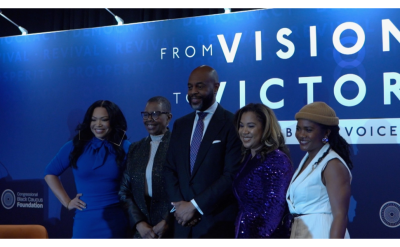
First, thank God for your life and advocacy. You are a three-time heart attack survivor. How are you?
I’m doing well. Thank you for asking.
Of course! Let’s talk about heart health, especially with black women. This is important as we focus on your work with the Black Heart Association (BHA). You are a thriver. Please share some of your story with us.
Sure. Surviving three heart attacks was only by the grace of God. I know people hear that all the time, but seriously, it was. I was sent home not once, but twice. I begged for an overnight stay. I didn’t realize I was advocating for myself. I just knew something was wrong with my body. If something was going to happen to me, I wanted it to happen at the hospital. They couldn’t find anything wrong. I was released, then had a massive heart attack within hours.
My God! That had to be scary! Although you didn’t know you were self-advocating, I’m so glad you followed God’s nudging. That’s so valuable.
Looking back, I can see it was self-advocacy. It was before I knew the definition. I was standing up for myself. As women, we know our bodies. To have someone tell us, “we can’t find anything” does not equate to something’s not wrong. I stood up for myself.
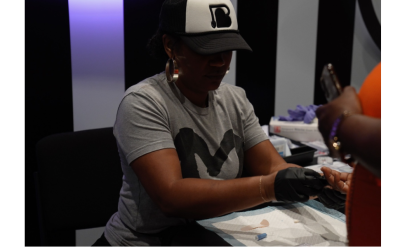
Thankfully! The disparities in healthcare are significant when it comes to our counterparts of different races and cultures. Did you know anything about that before you were hospitalized?
I knew, but when you’re going through a crisis, the last thing on your mind is someone trying to send you home because you’re black, too vocal or not vocal enough. Something was wrong, and I needed to know what was happening with me.
I understand. It’s a lot to digest. You lost your younger brother to heart disease. My condolences. Is that why you created the Black Heart Association?
Thank you! I created BHA because of us both. I knew others faced what I did. The disparities were real. My brother Stephen died at 38. It threw our family into a whirlwind. I had a front row seat to my funeral had I passed away like Stephen did. If this is happening to me and
Stephen, we’re not doing enough work. We talked about it, but it was time to be about it. That’s when the mobile idea was born through Stephen’s death. Taking his black suit to the funeral home was an eye-opener.
Wow! You said you felt like you had a front row seat to your funeral. That’s powerful. I know many of our readers will understand, as heart disease is the number one killer of black men and women in America.
What’s your mission statement for Black Heart Association?
Our mission is simple…to be the bridge that connects our community with health care. We want to make sure we provide access and hear from our community. We want to make sure they are aware of their heart health.
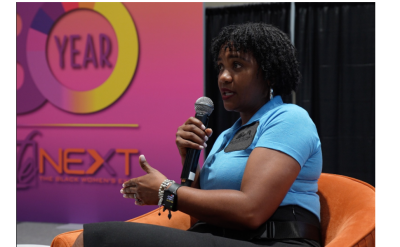
For sure! We talked about self-advocacy. How would you encourage us to advocate for ourselves if we’re in a health crisis, heart or otherwise?
I would say refuse to be denied. A lot of times, we’re sent home when we know we’re not okay. In our society, we say stand on business. Speak up for yourself. Don’t let the white coat fool you. They’re individuals who happen to be educated in health care. We know about the biases that happen in the
medical educational system. Knowing means standing and speaking up. You could be facing a bias that could potentially cost you your life.
Stand up for the people who love you, stand up for yourself, and most importantly, fight. That starts with using your voice.
Excellent advice. As we end, what’s one thing you want our readers to know about your journey with heart disease?
It was me yesterday, but it could be you today.
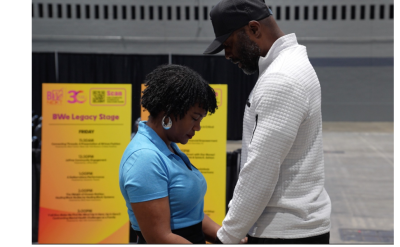
Photo Credits: HearRose Media for Black Heart Association
Follow Tara’s cause on Instagram: @BlackHeartAssociation

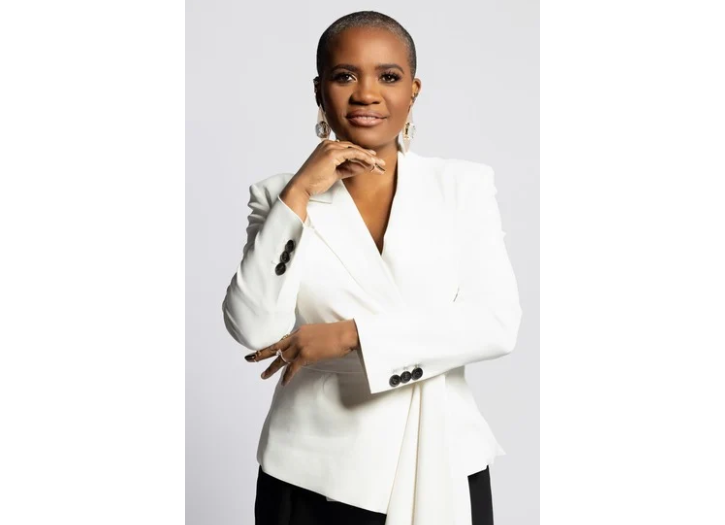





Add Comment
You must be logged in to post a comment.